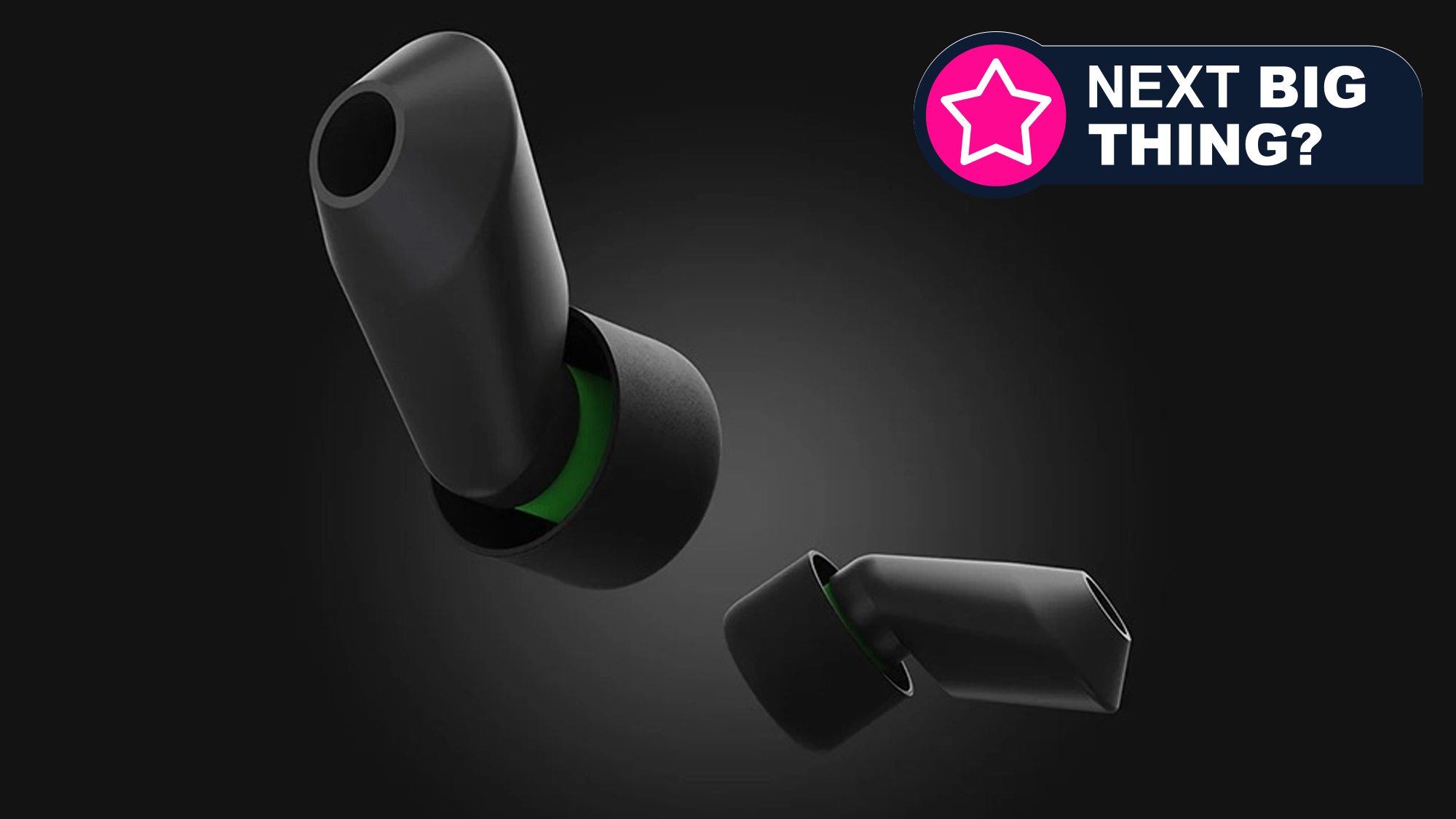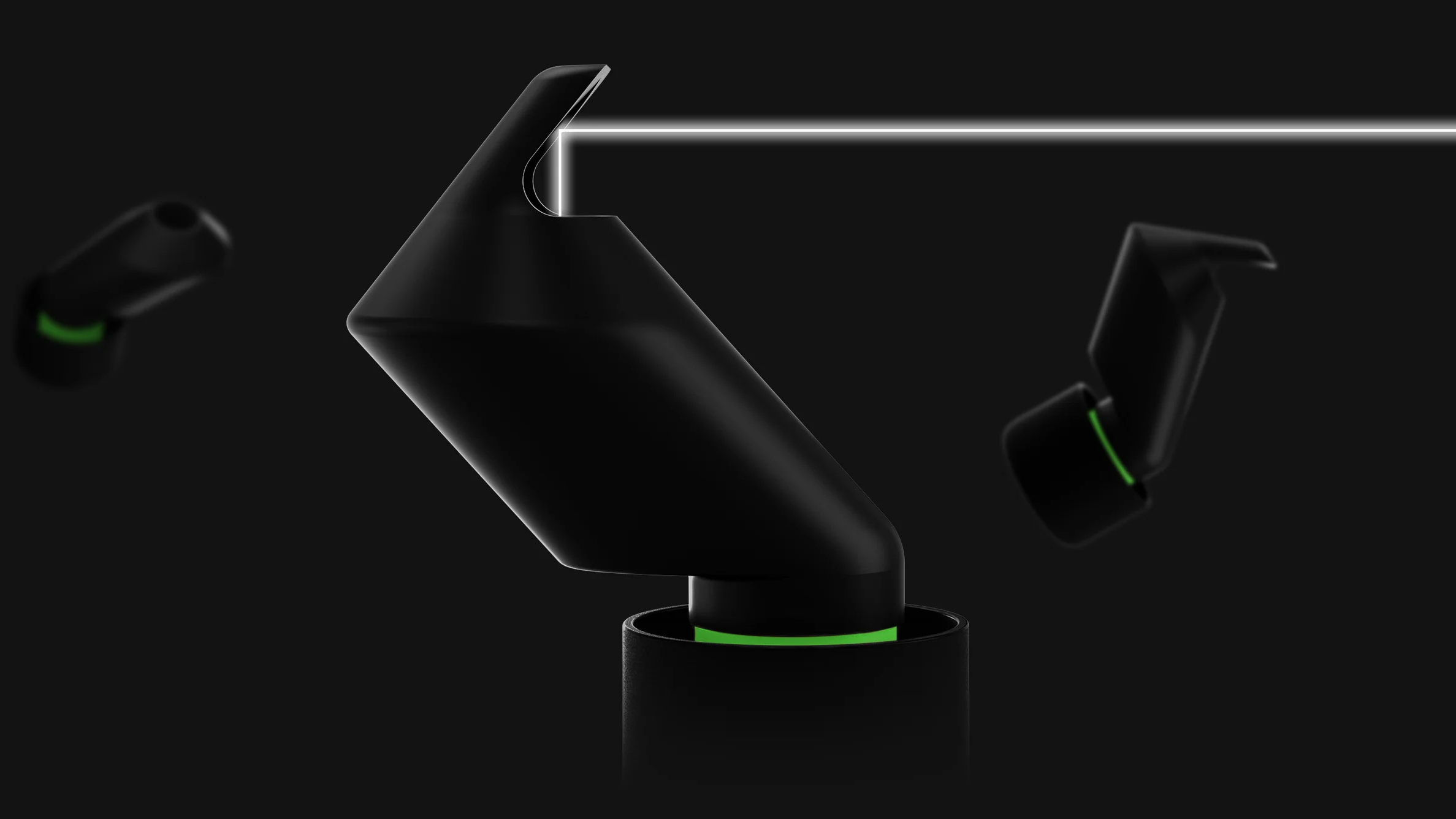
- The new Flare Audio Immerse aren't earbuds or plugs; they're ear reshapers
- Some music pros say they're amazing
- We… want to believe
Imagine a technology so amazing that it changed the way you hear the world. A technology so widely compatible that it upgrades not just headphones but hi-fi speakers and concert sound systems too. A technology so clever it makes the whole world sound better.
Imagine it costs about sixty bucks.
That's what Flare Audio is promising with its new Immerse product. Immerse looks like fancy earplugs or earbuds, but the product is neither of those things. It's "ear technology" that according to the firm changes the way your ears work.
Immerse comes with impressive endorsements. U2, Killers and NiN producer Flood says he's "finally heard the true sound of music", and he doesn't mean the movie.
Kiss and Eagles of Death Metal tour manager Steve Toth says the difference "is as subtle as a flying mallet". And Manic Street Preachers producer Dave Eringa says that your jaw will "hit the floor".
The sound of science?

Flare Audio's Immerse look like earbuds, but don't contain any electronics – instead, they apparently use "high-precision acoustic reflectors" to change the geometry of your ear canal and improve sound quality. But we've yet to try them to see if they live up to those claims.
So what does Immerse actually do? According to its creators, the enemy of sound quality is your ear. Because the insides of our ears are kinda shell-shaped, Flare says that they distort sound by at least 20 percent. That's due to something called HRTF, short for Head Related Transfer Function.
HRTF is a real thing, and it varies from person to person: it describes how multiple factors in your head – not just the shape of your ears but the size and shape of your sinuses, the density of your head and the shape of your oral cavity – affect the sound you hear. It's astonishingly complex, but Flare says it's got a one size fits all solution to that near-infinite variety.
According to the firm:
"the patented technology uses high-precision acoustic reflectors that ensure sound waves don’t distort as they enter our ears. Using Flare’s high precision, Mirror Image Sound™ technology, the result is the most detailed and immersive sound you can imagine, from any source."
I want to believe. I really do. But Flare has a bit of a track record with grand audio claims. As the Earjobs blog wrote about its high frequency-suppressing Calmer earplugs in 2021, "Flare Calmer is the most hyped personal hearing product ever. In the months leading up to release, there were rumors that it would cure tinnitus, solve sound sensitivity, and upgrade your ears a few thousand years ahead of evolution... Online, a lot of noise has been made about its potential as a cure for tinnitus, a solution for sensory processing or hypersensitivity, as well as a stress-mitigation device."
Flare is very careful not to claim that Calmer helps tinnitus on its website. But the marketing I, and others, saw on social media included testimonials saying exactly that: as Hearing Health Matters' Ben Thompson wrote, "In a sponsored Facebook ad from Flare Audio, the company that makes this product, they say that Calmer is an 'in-ear tech device to help some people reduce tinnitus and sound sensitivities.' They describe Calmer as a 'soft silicone in-ear waveguide that removes resonance from inside of our ears.'" Both Soundly.com and Hearing Health Matters concluded that for some people, Calmer could make tinnitus symptoms worse.
I don't doubt that Immerse will adjust the way music and other audio sounds; the same firm's Calmer product does that too. And I don't doubt that some people will like the results. But I'm taking the marketing with a very big pinch of salt, and you might want to see what the people on Audio Science Review's forum are saying about it.
You might also like
- The best headphones money can buy
- The best noise cancelling headphones
- The best earbuds







